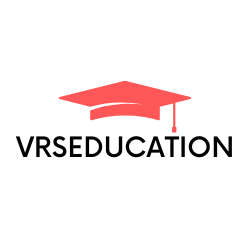Exams have been an integral part of education for generations, but have you ever wondered who was behind their invention? For students, exams can be stressful, often leading to frustration and curiosity about the origin of this assessment method.
The credit for inventing exams goes to Henry Fischel, an American professor from Indiana University. Born in the late 19th century, Fischel was instrumental in introducing the idea of standardized testing.
Why Did Henry Fischel Invent Exams?
The purpose behind Fischel’s invention was relatively straightforward. As a professor, Fischel realized that while students spent an entire year studying and moving from one class to the next, there was no concrete way to evaluate whether they truly understood the material.
Without a standardized system to assess knowledge, teachers had little evidence to prove whether their students were learning effectively.
Fischel believed that by introducing exams, educators could gauge a student’s comprehension and mastery of the subject matter.
His goal wasn’t to stress students but to ensure they were absorbing what they were being taught. Exams provided a way for teachers to identify areas where students struggled and needed further guidance, making education more impactful.
The Impact of Exams Today
While Fischel’s intentions may have been good, exams have evolved into something much more than a tool for assessing student knowledge.
Over the years, exams have become a critical factor in determining a student’s academic future, leading to increasing pressure and sometimes anxiety. The fear of failure has resulted in the rise of examination malpractice in some cases, where students resort to cheating to avoid disappointing grades.
Many critics argue that exams place too much emphasis on rote memorization rather than critical thinking and problem-solving skills. Students are often judged based on how well they can recall information under timed conditions, rather than their true understanding or intelligence. As a result, exams have become a game of grades, leaving little room for creativity or real learning.
While exams have their drawbacks, they remain an essential part of the education system. They allow for a standardized measure of academic performance, helping educators and institutions make informed decisions about students’ progress. Moreover, exams also play a role in preparing students for future challenges by teaching them discipline, time management, and perseverance.
The Double-Edged Sword of Exams
The examination system, while providing structure to the education process, has both advantages and disadvantages. On one hand, it helps standardize assessments, ensuring fairness in education. On the other hand, it can stifle creativity and make learning a mechanical process rather than an enriching experience.
For many students, exams are not a true reflection of their abilities. The pressure to perform well often overshadows the joy of learning, turning education into a race for grades. As a result, students who may not excel in traditional exams are sometimes left feeling inferior, despite having other talents and strengths that go unrecognized by the system.
MasterMind, a well-known education consultant, sums up the problem aptly: “Examinations blur the line between smart people and those who score better.”
While exams have become a permanent fixture in education, there is a growing call for reform. Some educators are advocating for alternative methods of assessment that focus more on individual strengths, creativity, and practical knowledge, rather than relying solely on exams.
Wrapping Up
Henry Fischel’s invention of exams in the 19th century was intended to improve the education system by providing a standardized way to measure student knowledge.
Although exams have evolved and become more complex, their original purpose was to benefit students by ensuring they were learning effectively.
However, over time, the system has become a double-edged sword, creating stress for students while also serving as an important tool for academic evaluation. As we look toward the future, finding a balance between traditional exams and more holistic forms of assessment could be the key to enhancing the education system.
Frequently Asked Questions (FAQs)
Which is the hardest exam to pass?
The Chartered Accountant (CA) exam is widely regarded as one of the toughest exams to pass.
Who founded the word ‘exam’?
The word “exam” was first used as a noun in 1568, in the writings of Edward Dering.
Who invented exams in China?
Exams were first introduced by the Han Dynasty in China as a method for selecting candidates for civil service positions.
Do exams determine intelligence?
Not entirely. Exams mostly test memory and how well a person can recall information under pressure, but they do not always reflect a person’s true intelligence or potential.
Are there alternatives to traditional exams?
Yes, some educators advocate for project-based assessments, continuous assessment, and oral presentations as alternatives to traditional exams.



No Comment! Be the first one.